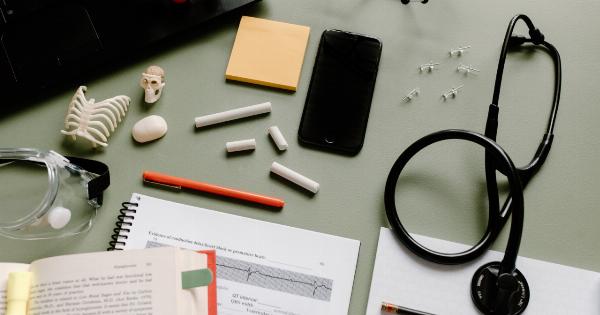Self-pleasure, commonly known as masturbation, is a natural and healthy form of sexual expression that has been practiced by humans for centuries.
However, despite its widespread acceptance and recognition as a normal part of human sexuality, there are various myths and misconceptions surrounding this topic. One such myth suggests that self-pleasure can potentially lower testosterone levels in individuals. In this article, we will delve into the evidence and scientific research to determine the credibility of this claim.
Defining Testosterone and its Importance
Before addressing the myth, it is crucial to understand what testosterone is and its significance in the human body. Testosterone is a hormone primarily found in males, although it is also present in smaller amounts in females.
This hormone plays a crucial role in various bodily functions, including the development of reproductive tissues, muscle mass, bone density, and the regulation of libido.
Understanding the Relationship Between Self-Pleasure and Testosterone
In order to evaluate the claim that self-pleasure lowers testosterone levels, it is important to examine the existing scientific evidence.
Various studies have been conducted to explore the effects of self-pleasure on testosterone levels, and the majority of these studies have found no significant correlation between the two.
A study published in the Journal of Sexual Medicine in 2009 examined the effects of masturbation on testosterone levels in men.
The researchers collected semen samples from participants before and after self-pleasure and measured their testosterone levels. The results revealed that there was no significant change in testosterone levels after masturbation, suggesting that self-pleasure does not have a direct impact on testosterone production.
Another study published in the Archives of Sexual Behavior in 2016 focused on the relationship between sexual activity, including self-pleasure, and testosterone levels in both men and women.
The findings indicated that engaging in sexual activity, including masturbation, did not lead to a decrease in testosterone levels in either gender. This further supports the conclusion that self-pleasure does not lower testosterone levels.
The Role of Testosterone in Sexual Arousal
While the myth suggests that self-pleasure lowers testosterone levels, it is important to note that testosterone actually plays a role in sexual arousal.
This hormone is responsible for triggering sexual desire and enhancing libido in both men and women.
When an individual engages in self-pleasure or any sexual activity, the brain receives signals which stimulate the release of testosterone.
The increase in testosterone levels contributes to the feelings of arousal and pleasure experienced during the act. Therefore, it can be argued that self-pleasure actually has a positive impact on testosterone levels in the short term, by prompting their release.
Misinterpretation and Misconceptions
The belief that self-pleasure lowers testosterone levels may have emerged due to a misinterpretation of certain physiological responses.
After orgasm, testosterone levels temporarily decrease as part of the refractory period—a phase during which the body recovers and returns to its pre-arousal state. It is important to differentiate this temporary decrease from a long-term impact on testosterone production.
Furthermore, testosterone levels naturally fluctuate throughout the day, peaking in the morning and gradually declining throughout the day.
These natural variations in hormone levels are not solely influenced by sexual activity but are a result of the body’s internal biological rhythms.
Other Factors Affecting Testosterone Levels
It is essential to acknowledge that there are numerous factors that can influence testosterone levels in both men and women.
Lifestyle choices, such as diet, physical activity, sleep patterns, and stress levels, can have a significant impact on hormone production.
Regular exercise, adequate sleep, a balanced diet, and stress management are all factors that contribute to maintaining optimal testosterone levels.
Conversely, a sedentary lifestyle, poor sleep quality, a diet lacking essential nutrients, and chronic stress can all lead to a decline in testosterone levels.
The Importance of Sexual Well-being
Regardless of the impact on testosterone levels, self-pleasure plays an important role in sexual well-being. It is a natural and healthy way to explore one’s body, learn about personal preferences, reduce stress, and enhance sexual satisfaction.
Engaging in self-pleasure does not have any negative impacts on physical or mental health, contrary to the myths that surround it.
Conclusion
The myth that self-pleasure lowers testosterone levels is not supported by scientific evidence. Numerous studies have shown that masturbation does not have a direct impact on testosterone production.
In fact, experiencing sexual arousal, including through self-pleasure, can temporarily increase testosterone levels.
It is crucial to differentiate between short-term hormonal fluctuations and long-term impacts on hormone levels.
Factors such as lifestyle choices, exercise, diet, and stress management have a more substantial influence on testosterone production than self-pleasure alone.
Sexual well-being is a fundamental aspect of overall health, and self-pleasure provides a safe and enjoyable means of exploring one’s body and sexuality.
It is essential to debunk the myths surrounding self-pleasure and promote a healthy understanding of this natural human behavior.






























